This post may contain affiliate links. You can view our affiliate disclosure here.
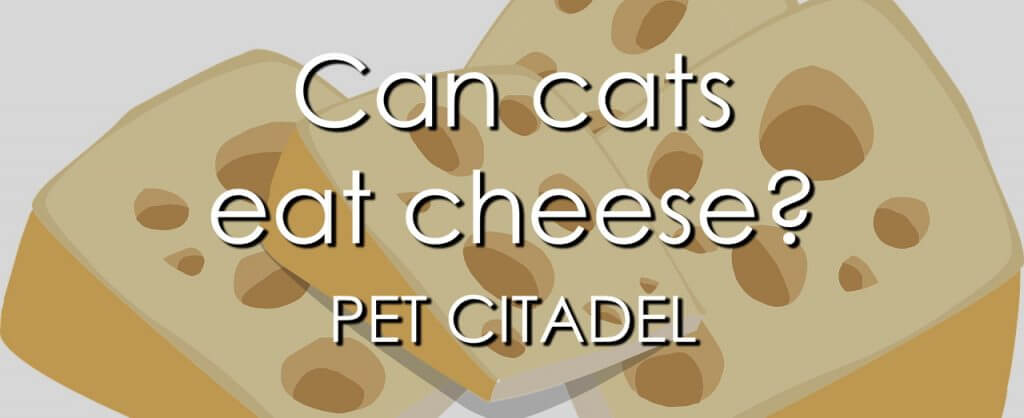
It might seem a surprising question since cheese is just milk, and we have all seen cats lapping up saucers of milk with obvious enjoyment.
Milk is a natural product, right? How can milk or cheese be harmful?
Well, it turns out that the answer to this question is a no.
Cats should not eat cheese, nor should you offer them a saucer of milk, as cats are mostly lactose intolerant. Dairy products will likely give them diarrhea since they cannot process them properly.
I must admit that before someone posed the question “can cats eat cheese?” to me, I would probably have instinctively said “yes” as I have given my cats milk before many times.
I guess like most people, I never connected the dots between the milk and the diarrhea that came later. I had seen the way my cat purred and showed its genuine delight at receiving the milk treat, so milk being harmful just never crossed my mind.
Thinking about it, cats are not that different from humans; we often eat or drink things that are bad for us because we enjoy them.
Mammals And Milk
Kittens, like all mammals, are born with the ability to digest lactose, which is the main sweetener in milk and found in almost all cheese.
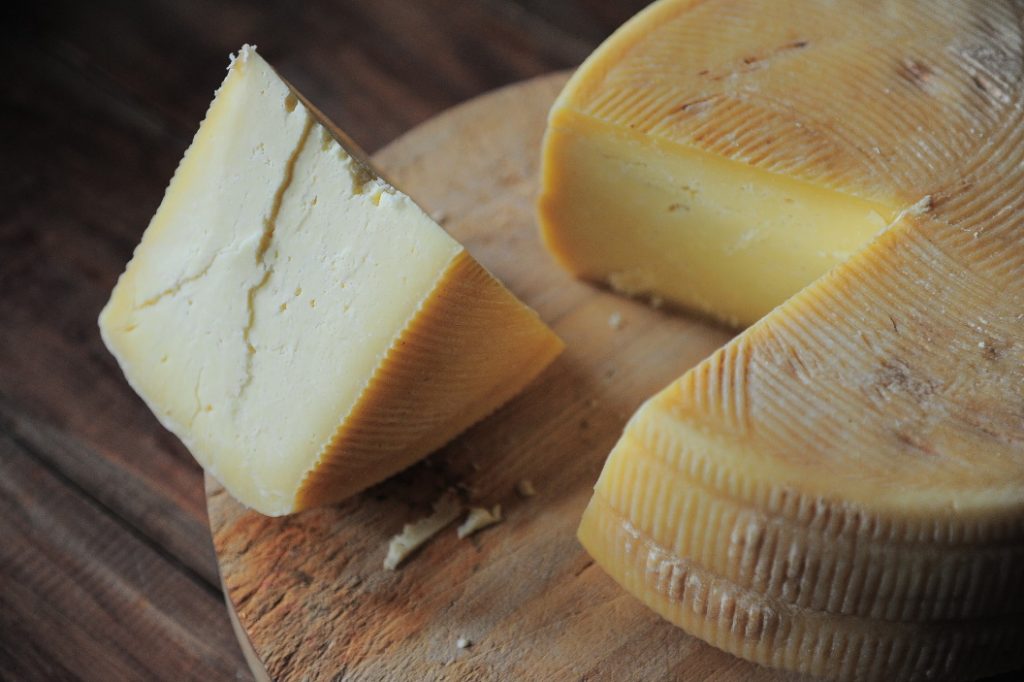
However, as the cat grows up, it develops a condition that means it can no longer properly digest the lactose. This can be true for humans too, some of which develop lactose intolerance.
When the kitten is born, the sugar (lactose) is an important source of nutrition for it. It provides energy.
However, once we wean the kitten, the enzyme that allows the cat to digest the lactose reduces and eventually disappears.
The lactose just sits in the gut and there is a risk that it will ferment. This fermentation causes stomach problems and potential vomiting.
Be aware that although milk will not kill a cat, you may be causing it some discomfort by continuing to give it foods that contain lactose like cheese.
Having said all this, there are a few cats that remain able to deal with lactose. They may beg for milk and show immense joy when they get a saucer of milk or piece of cheese.
However, it is better to err on the safe side and find some other more healthy treat. Or even better, just stick with quality, nutritious cat food.
Is all milk the same?

No, milk with a higher level of fat or cream contains far more lactose than low-fat milk or skimmed milk. However, it is still advisable not to feed your cat any kind of milk.
Cat-Sip Real Milk
This problem has been recognized by the pet-loving community and there is a product called Cat-Sip Real Milk, made from milk from American dairy farms. It is guaranteed lactose-free and tested for digestibility.
Please remember though that this is not a meal replacement; rather, it is meant to be an added snack or treat.
Lactose-Free Cheese
If you really cannot deny your cat its favorite treat, then there is one final solution, and that is to buy lactose-free cheese.
There are several brands that you can buy, and they will not cause your cat any discomfort or cause diarrhea. Maybe it will be good for yourself as well.
What other foods should a cat not eat?
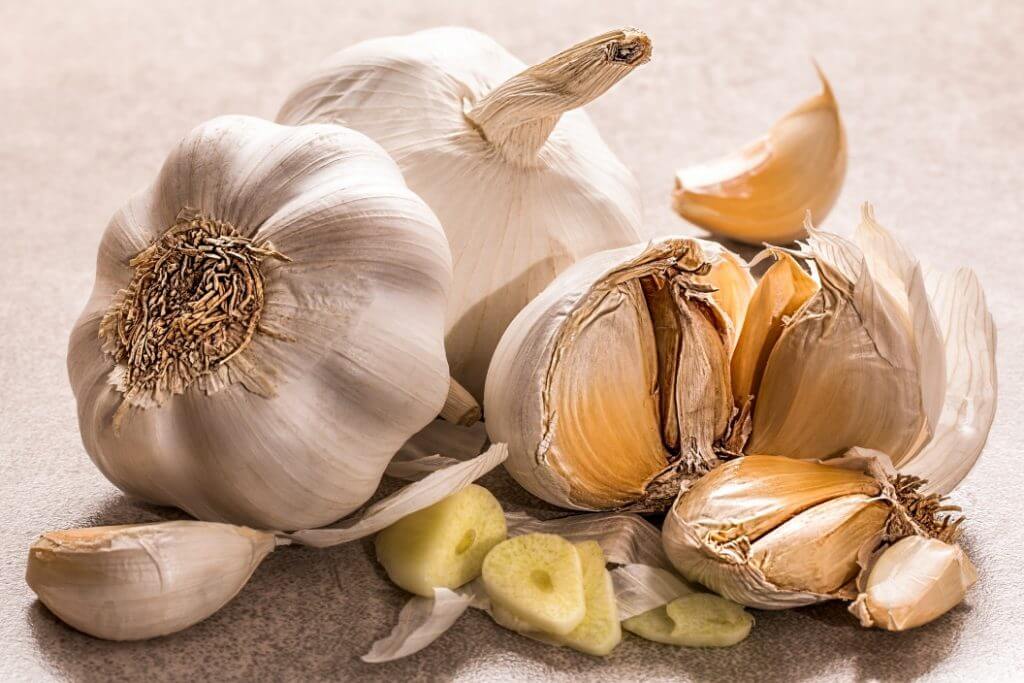
The revelation that cats should not eat cheese or drink milk might have got you wondering if there are any other common foods that could also be harmful to our cats.
Here is a list of the most toxic foods for cats:
- onions
- garlic
- chocolate
- caffeinated drinks
- grapes and raisins
- dog food
- alcohol
- raw dough
There are a couple of items here that might even surprise you. Some that surprised me were:
Chocolate
It is widely known that chocolate is fatal for dogs, but it seems that chocolate is just as bad for cats.
Chocolate contains methylxanthines which can cause vomiting and several life-threatening issues. This substance is also present in caffeinated drinks.
Dog Food
Dog food is not strictly toxic for cats, but is missing a number of nutrients that dogs can do without but that causes big problems for cats, such as heart disease, vision, and dental problems.
Final Words
To repeat the answer to our question of whether or not cats can eat cheese, they should not, and as we have seen, there are a number of other foods that can create health problems for cats or even kill them.
With that said, one thing that you should give to your cat is lots of water. Replace that bowl of milk with a bowl of water, and the piece of cheese with a hunk of cooked meat.
Thanks for reading. Have you fed your cat cheese before or were you considering doing so? Feel free to ask any questions in the comments below.

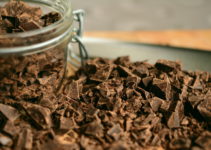
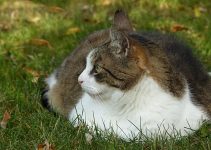
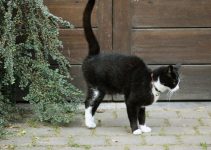
Thanks for the great read Kevin. I’ve often been told that cats won’t eat foods that are bad for them, but I’ve learned this to not be true. How can they even know what’s bad for them aside from the taste and texture? I think this is a dangerous line of thought.
I have two adult cats, both of which are completely lactose intolerant. As you allude to, this is the norm for cats. I imagine that some adult cats can tolerate lactose (cheese) quite well, and in those cases, it can be okay to feed it to them, but I wouldn’t go out of my way to do it.
Thanks for the comment Mandy. Nope, that’s not possible, since cats can’t know what certain foods contain. Cat owners need to do their research before feeding their cats anything other than normal cat food. Yes, some cats do okay with cheese, but in these cases, you should still be cautious and limit the amount. It’s not necessary to feed cats cheese anyway.